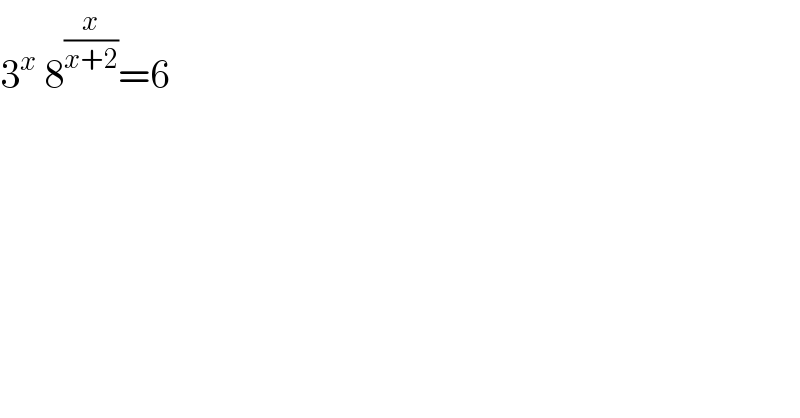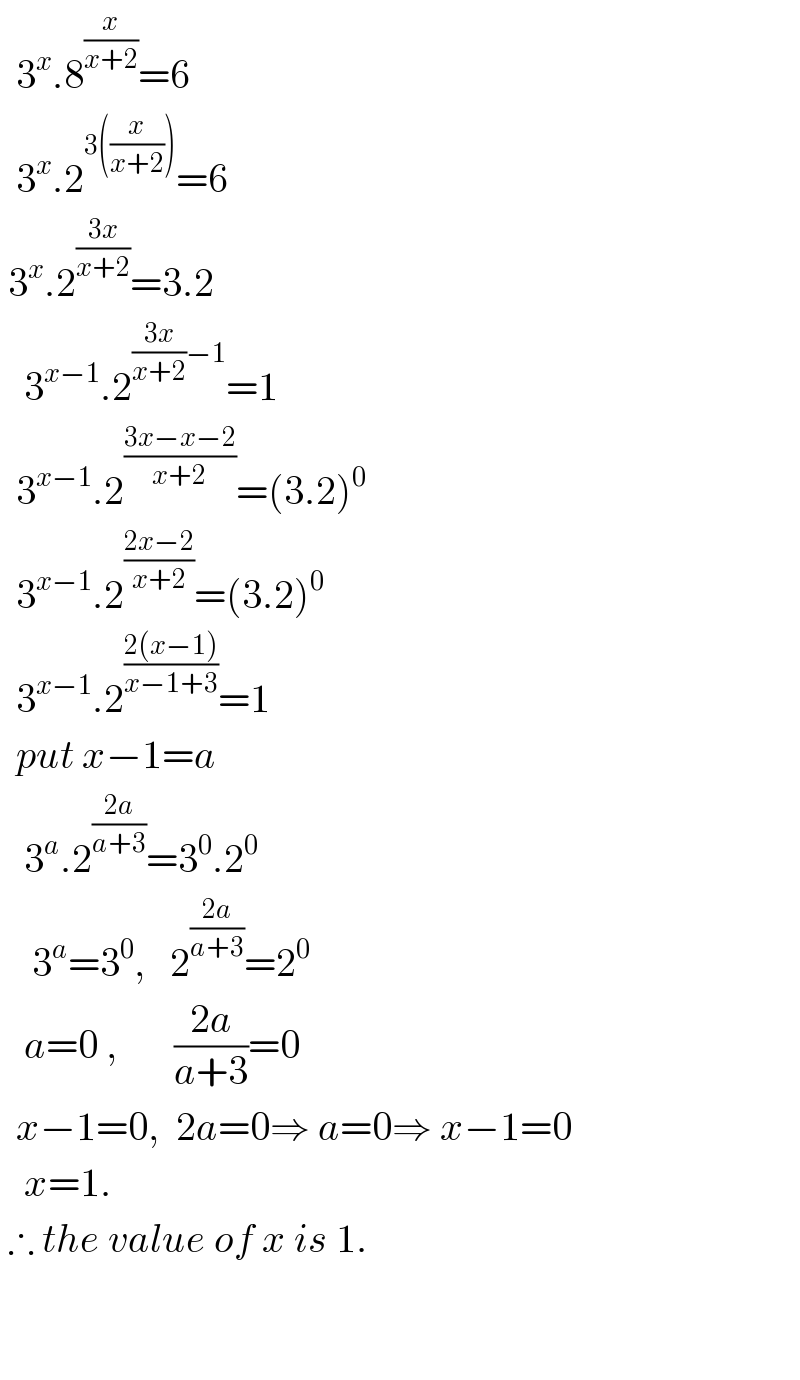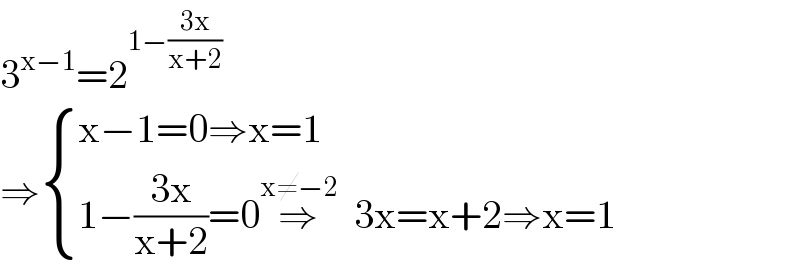
Question and Answers Forum
Question Number 83759 by M±th+et£s last updated on 05/Mar/20

Commented by M±th+et£s last updated on 05/Mar/20

Commented by niroj last updated on 06/Mar/20

Commented by mr W last updated on 06/Mar/20

Answered by behi83417@gmail.com last updated on 05/Mar/20

Answered by mr W last updated on 05/Mar/20
![3^(x−1) 2^((2(x−1))/(x+2)) =1 [3×2^(2/(x+2)) ]^(x−1) =1 x−1=0 ⇒x=1 or 3×2^(2/(x+2)) =1 2^(2/(x+1)) =(1/3) (2/(x+2))=−((ln 3)/(ln 2)) ⇒x=−(2+((2ln 2)/(ln 3)))≈−3.2619](Q83766.png)
